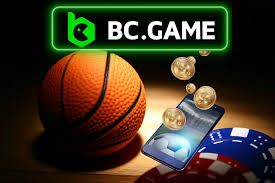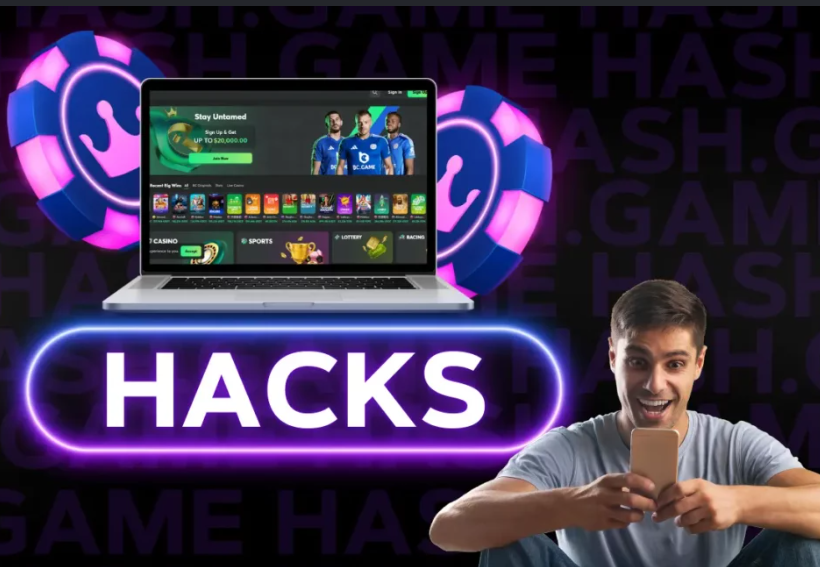
Bc.G: The Future of Blockchain Gaming
Explore more about Bc.G at https://bcgamehub.com/ to dive into the exciting world of blockchain gaming.
In the ever-evolving landscape of digital entertainment, the intersection of blockchain technology and gaming has given rise to a groundbreaking platform: Bc.G. As traditional gaming encounters the limitations of centralized control and ownership, blockchain gaming platforms like Bc.G are establishing a new paradigm that promises unprecedented opportunities for gamers and developers alike.
The Rise of Blockchain Technology in Gaming
Blockchain technology, with its decentralized and transparent nature, has sparked innovative solutions across various industries, and the gaming sector is no exception. In traditional gaming, issues such as lack of true ownership of in-game assets, limited economic opportunities, and restricted interoperability between games have hindered the overall player experience. Blockchain technology addresses these challenges by enabling true digital ownership, tokenized economies, and a seamless connection between different gaming ecosystems.
True Ownership of Digital Assets
One of the most significant advantages of blockchain in gaming is the ability to truly own in-game assets. On traditional platforms, players often spend countless hours and even real money to obtain items, characters, or skins, only to have these assets locked to a specific account or platform. Bc.G leverages blockchain’s immutable ledger to ensure that players have genuine ownership of their digital assets. This ownership is protected by smart contracts, which securely store information about each asset on the blockchain, allowing players to freely trade, sell, or transfer their assets as they see fit.

Innovative Business Models
Blockchain gaming platforms introduce unique business models that benefit both players and developers. By tokenizing in-game items or currencies, Bc.G allows players to earn cryptocurrencies during gameplay. These assets can be used within the game or traded on open marketplaces for profits. This play-to-earn model not only enhances player engagement but also provides a potential revenue stream for dedicated users. Developers, on the other hand, benefit from reduced costs associated with fraud prevention and increased player acquisition driven by the allure of earning real-world value.
Interoperability and Connectivity
Interoperability is another frontier where Bc.G shines. By using a decentralized infrastructure, Bc.G allows for shared ecosystems where assets and achievements can move seamlessly between different games. Imagine earning a rare sword in one game and wielding it in another entirely different world. This not only increases the value of the time spent gaming but also encourages collaborations between developers, fostering a vibrant and interconnected gaming community that thrives on communal creativity and shared experiences.
Case Studies and Real-world Applications
The impact of blockchain gaming is already evident in several pioneering projects and games. One notable example is “Axie Infinity,” a blockchain-based game that allows players to breed, battle, and trade fantasy creatures called Axies. This platform has not only captivated gamers but also demonstrated the economic potential of blockchain games by generating substantial income for players around the globe. Similarly, “Decentraland” offers a virtual reality platform where users can purchase and develop land parcels on the blockchain, creating a user-driven world with limitless possibilities.
The Role of Non-Fungible Tokens (NFTs)

Non-fungible tokens (NFTs) are integral to the Bc.G ecosystem, providing a mechanism for representing unique digital assets. Unlike cryptocurrencies which are interchangeable, NFTs are indivisible and distinct, making them ideal for representing in-game items, characters, or even virtual real estate. The rise of NFTs has transformed how value is perceived and exchanged in the gaming world. These tokens facilitate the buying, selling, and collecting of unique digital items on platforms like Bc.G, enhancing the gaming experience by providing tangible value and rarity to digital achievements.
Challenges and Future Prospects
Despite the promising outlook, blockchain gaming faces several challenges that must be addressed to achieve widespread adoption. Scalability remains a concern, as current blockchain infrastructures may struggle to handle the massive user bases typical of popular games. Additionally, the complexity of blockchain technology can be a barrier to entry for non-technical users. However, advancements in layer-two solutions and user-friendly interfaces are being developed to mitigate these issues.
The Road Ahead
The future of Bc.G and blockchain gaming is bright. As technology continues to evolve and more developers embrace the blockchain model, we can expect to see further innovation in gameplay mechanics, monetization strategies, and cross-platform integration. The community-driven nature of blockchain gaming will likely inspire new forms of collaboration between developers and players, leading to richer and more immersive gaming experiences.
Conclusion
In conclusion, the advent of blockchain technology in gaming, exemplified by platforms like Bc.G, is revolutionizing the industry by granting players true ownership, introducing novel business models, and enabling interoperability between games. As challenges are overcome and the technology matures, Bc.G stands poised to redefine gaming as we know it, ushering in an era where the boundaries between virtual and real economies blur, and the possibilities for players and developers are truly limitless.
